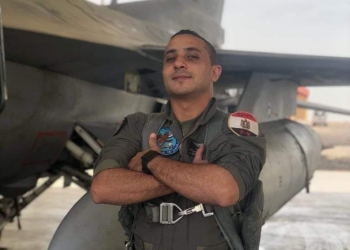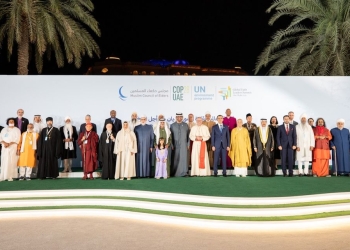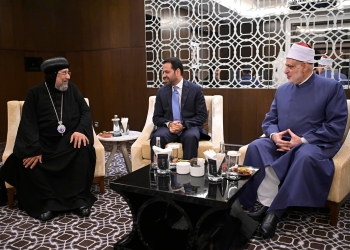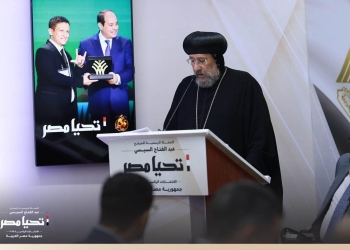Freedom, citizenship, versatility and integration are some concepts deemed crucial to preserving man’s dignity and entity. Likewise, they preserve countries’ entities as they march toward edification and progress: whereby their children strengthen one another. Moreover, they constitute the ideological principles that combat terrorism which destroys all sorts of progress achieved by humanity.
Freedom is humanity’s most precious endeavor. It comes next in order to man’s basic needs. Freedom is one of choice, thinking, and living. Yet, responsibility is freedom’s companion and associate, as freedom entails that man be in charge of his self. Moreover, he is not just responsible for attaining his freedom, but for safeguarding that of others as well. Leader Nelson Mandela says, “A free man who doesn’t feel bad when another is insulted is no free man.”
Humans were created from dust. They have the selfsame patriarch, Adam. They live through God’s breath. In effect, every man is entitled to live freely, but without trespassing his fellows’ freedom. Thus, everybody is entitled the freedom of creed: for it is a private feeling within man: a relation between him and God. He is responsible for it. So, the Bible says, “I have set before you life and death, blessings and curses. Now choose life, so that you and your children may live.”
In the Quran, we read, “There is no compulsion in religion…” and “Had your Lord willed, all the people on earth would have believed. Do you want to force the people to become believers?”
Recently, however, humanity has started bemoaning the loss of peace and spreading of terrorism. This makes it imperative that the whole world unite to combat it. Despite the fact that terrorism has a multiplicity of facets: economic, social, political, and strategic, combating it ideologically is the most important tool to heed as it protects youth and societies from being drifted by this destructive tsunami.
Religions do consent the importance of peace to man. In Surat al-Baqara (The Cow Chapter), we read, “O believers! Do enter into peace”. In Surat al-Hujrat (The Chambers Chapter), we read, “O mankind, surely We have created you from a male and a female, and made you tribes and families that you may know each other. Surely the noblest of you with Allah is the most dutiful of you.” The phrase “that you may know each other” has a profound meaning: God wants people to know one another and live lovingly. In Christianity, we read, “Blessed are the peacemakers…” Humanity at large is embraced in the Sermon on the Mount, whereby, “love your enemies, bless those who curse you, do good to those who hate you, and pray for those who spitefully use you and persecute you.” This entails that we should treat our fellow citizens even more lovingly.
Peace and edification are based on justice. An unjust society is sure to end up in fragmentation. Alexander the Great says, “Whoever clings to justice should fear nobody.” In fact, kings’ power emanates from their justice. Caliph Umar bin al-Khattab is a role model of justice. So much so that Khosrow’s messenger said to him, “You have been fair and, thus, secure. In turn, you can sleep soundly, Umar.” In the Pact of Umar, we read, “Hereinafter are the stipulations of safety given by God’s servant, Umar, the Prince of believers: He does hereby provide them with security for themselves, possessions, churches, crosses, the sick, the healthy, and the priests. Churches are not to be inhabited. Nor are they to be demolished. Neither their areas nor grounds, nor crosses nor possessions should be reduced. They should not be forced to abandon their religion. None of them should be hurt.”
A history researcher finds out that the eras during which Egypt and the Middle East were ruled by just sovereigns were ones of strength: for when a ruler abides by justice, the country becomes secure. Everybody feels safe, which entails the flourishing of progress and civilization. On the other hand, when wars ignite, people abandon their countries’ affairs. However, there is no difference between internal and external enemies. Yet, internal enemies are more difficult to handle: for they try to tear the country apart that it might remain in the abyss.
This is how the initiative of the Egyptian Family House came to being by al-Azhar, which reminds us of President Abdel Fattah al-Sisi’s words on February 18, in Nairobi: “In this context, I would like to pinpoint al-Azhar’s endeavors, being a guide to moderate Islamic ideas and correct religious teachings that combat religious extremism and demolish its ideological foundation.
The Idea of the Egyptian Family House
Grand Imam of al-Azhar, Dr. Ahmed al-Tayeb is the initiator of the idea of “The Egyptian Family House”. Reposed Pope Shenouda III, 117th patriarch, welcomed it due to his love and appreciation for Dr. al-Tayeb, which is why he agreed to participate in establishing the “Egyptian Family House.” The idea made its debut as a result of the massacre of Our Lady of Salvation Church in Iraq. This took place on October 31, 2010. Then came the bombing of the Two Saints Church in Alexandria on the eve of 2011.
It is clear that there was a plan to create sectarian conflicts among Muslims and Christians of the Middle East. The plan involved spreading the idea of “rejecting the other”. In effect, Dr. Ahmed al-Tayeb visited Pope Shenouda III on January 2, 2011, to comfort him and present him the idea. The Pope welcomed the initiative, and implementation ensued.
Due to Dr. al-Tayeb’s clear and enlightened vision as well as his incessant toil, the Egyptian Family House was established in 2011. It is an independent organization presided by the Grand Imam of al-Azhar and the Coptic Church Pope. Also, the Egyptian Family House involves representatives of Christian sects as well as some experts and specialists.
Goals (As Per Act I):
– Preserving the oneness of the national fabric.
– In order to do so, communication and coordination amongst the concerned bodies has to be achieved.
– Presenting suggestions and recommendations to these bodies.
– Conducting meeting and conferences in Egypt’s governorates.
Mission
The Egyptian Family House strives to implement the following mission:
– Acknowledging common and shared values amongst religions, cultures and civilizations.
– Creating a new discourse that advocates ethical and ideological upbringing that meets the youth’s needs and enhances interest in the culture of peace and renouncing hatred.
– Utilizing the Egyptian cultural legacy, along with the unique historical and cultural elements of the Egyptian character.
– Getting along with the other and implanting cooperation and mutual understanding amongst the country’s citizens.
– Detecting and suggesting preventive measures that preserve societal peace.
Administration
The Egyptian Family House is a joint organization presided by the Imam of al-Azhar and the Pope of the Coptic Church. Its headquarters is the Imam’s Headquarters in Cairo. Al-Azhar is now represented by Professor Doctor Ahmed al-Tayeb, while the Coptic Orthodox Church is represented by His Holiness Pope Tawadros II, the 118th patriarch.
The Egyptian Family House has a secretary general and an assistant secretary general. Current Secretary General is Dr. Hamdy Zaqzouq, ex Minister of Endowments.
The Egyptian Family House is run by:
– The Board of Trustees: they are not less than 11 and not more than 27 members. This board assembles regularly. Yet, it can assemble at times of urgency. The Board of Trustees sets the general policies of the Family House and observes their implementation.
– The Executive Board: it is presided by the secretary general aided by the assistant secretary general. It observes the implementation of general policies, and includes committee heads and their assistants.
Committees
– Religious discourse committee
– Education committee
– Youth committee
– Family culture committee
– Executive emergency committee
– Media and public relations committee
– Follow-up committee
– Monitoring committee
Further Initiatives
– “No to violence … No to terrorism” at schools
– “The Family … Rights and Duties” at clubs, villages, and youth centers
– “The role of youth in building Egypt’s Future” at border governorates.
Work never stops in the Egyptian Family House. Several branches for it have been established in governorates, and the establishment of branches abroad is being studied. The experience of the Egyptian Family House which core is believing in man’s freedom and effecting citizenship to establish a strong fatherland whereby happy people live and succeed in all fields deserves taking the pains.
Above are some initiatives. Yet, one cannot deny the presence of many an internal and external challenge, such as:
– The external terrorism which threatens Egypt’s security and stability.
– Internal or external ideologies that attract the world’s youth to mistaken interpretations of religion.
– Development in all the realms of life which requires a lot of effort
– Retrieving abandoned values which are crucial to man’s life when wrong concepts have overwhelmed people’s minds as means to achieve man’s goals quickly and effortlessly.
Yet, we thank God for granting Egypt a wise leader who is aware of the danger of terrorism: tearing the country asunder. President Abdel Fattah al-Sisi has been curing Egyptians’ broken hearts. After al-Botroseya terrorist attack, which took place 80 days ago, he ordered the prompt restoration of the church. This was accomplished in fifteen days. Moreover, we can never forget his Excellency’s instructions regarding the Christian families that moved from North Sinai to Ismailia and other governorates, namely, to provide for their residence, food, medical care, work, schooling and so on.
Likewise, the President declared that he would not allow any violations to take place under the cloak of religion (whereas religion acquits itself from them) against Egypt and her children. Also, the Grand Imam of al-Azhar said yesterday, “Religion has nothing at all to do with this.”
Those who threaten to weaken Sinai’s demographic structure and make Egypt appear pathetic are but trying to revive a conspiracy that was uprooted by the revolution which the Army supported. Thanks to this brave Army, Egypt’s security, which is also the Middle East’s and Europe’s, is preserved. We shall never accept any justifications for the bloody attacks that happen, or happened in the past, under the cloak of religion: for this is but a representation of terrorism which has its own supporters who use it to serve their interests.
We also thank God Who has granted us religious leaders who strive to attain joint peaceful living. Dr. Ahmed al-Tayeb represents Islam’s moderation. Pope Tawadros II toils to implant love, peace and the principle of joint living. Likewise, we thank all Christian and Muslim sages who united and came over to attend al-Azhar Conference and the Muslim Council of Elders to preserve the poly and versatile Middle East.
Egypt was blessed by the prophets’ advent, like Abraham, God’s friend, Jacob, Joseph, Moses, then St. Mary with her child who fled from Herod: for they sought refuge in her land. Egypt will always be the world’s safe fortress. May God guide us to whatever is good for humanity.
[epa-album id=”33299″ show_title=”false” display=”full”]









